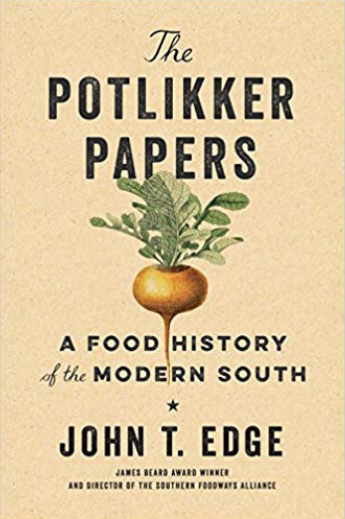One of the markers of the South is good old fashioned Southern cooking, like shrimp and grits, cornbread or collard greens. But it’s important to see how food can form an identity of a region and how cultures can be influenced by this. You’d never guess that food would have such a deep connection to history and its relation to our diet.
A prelude event for Winthrop University’s 2nd Interdisciplinary Conference, The World of Food, called “Diversity and Creativity in Southern Food Culture” was held on Feb. 20 in the Rutledge auditorium. The event featured a presentation of documentaries from the Southern Foodways Alliance website about diversity of Southern cuisine from the eyes of chefs in the South.
Winthrop French assistant professor Anna Igou was one of the hosts of the event. She mentioned the founder of the SFA, John T. Edge would be the keynote speaker at the coming conference. The SFA is an organization that has made it their mission to study and preserve Southern cultural through food history.
“I’ve known about the SFA for a while now and they hold events all over the South,” Igou said. “John T. Edge has made it his goal to look at the South’s history and evolution through its history of food.”
John T. Edge authored “The Potlikker Papers” which gives a historical perspective on how Southern food became so popular in American culinary culture and how issues of race have been intertwined with this. He was invited for connections toward both the history Southern cooking and connection to Winthrop University.
“When the theme was established, he [John T. Edge] was a good choice to bring to Winthrop University, since his mother attended Winthrop but didn’t graduate,” Alice Burmeister, art history associate professor said.
Burmeister, another host of the film festival focused on providing films from a spotlight of Mexican and Thai restaurants in the American South to show how they use the South to influence their cooking and help mold the identity of Southern cooking.
“The diversity and variety of different nationalities and types of food was interesting with the passion the individuals [in the documentaries] do with their work,” Burmeister said.
One of the highlights of the SFA festival was “They Came for Shrimp and Grits: The Life of Bill Neal,” which analyzed the life of Bill Neal, who was the author of the “Southern Cooking” cookbook. Neal was influenced by Creole cooking from New Orleans and study of cultural connections of food. Igou was impressed with the variety of cooking used and how it brought southern cooking on the map.
“The way that they cook is influencing the way that we eat from what we cook and what we taste,” Igou said.
With the short run time, the film festival went through seven documentaries, all of which were available on the SFA’s official website to view. There was difficulty during the festival for which documentaries were selected for the students to watch at the festival.
“We just wanted to show a diverse variety of different movies, it was really hard to choose which ones to watch,” Burmeister said.
A recurring theme within the documentaries is how different restaurants, such as a tortilla bakery in Lexington, Kentucky and a fresh farm grocery in Charleston, South Carolina are accepted and thrived in a environment that has had its hardship in history, but shows evolution
“It’s clear that it was hard work for all of them and I found it amazing how the Southern communities embraced them and their work,” Igou said.
By the end of conference and film festival, students will not only gain a new appreciation to their mother’s cooking but learn how the simple aspect of food can influence a new community of diversity and comfortable memories through what we eat on our plates.
“Hopefully the students who attended will take away that the taste of Southern cooking is richer and interesting than we’d think,” Igou said.




